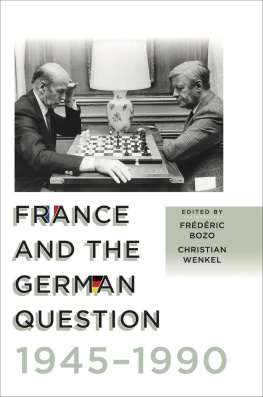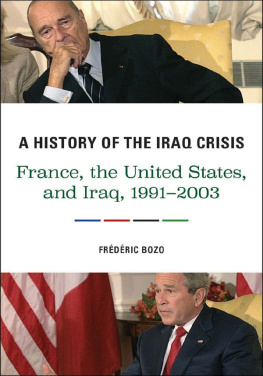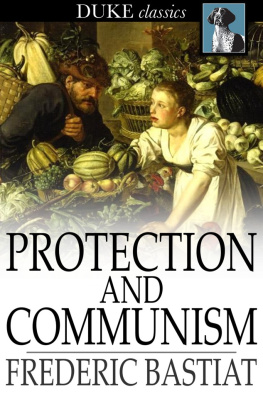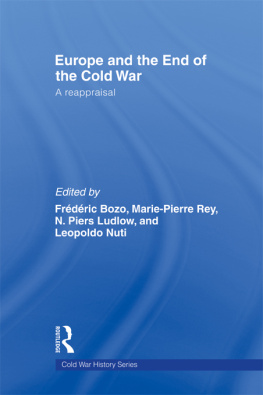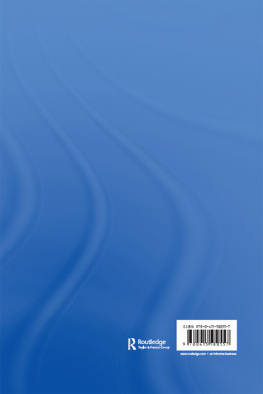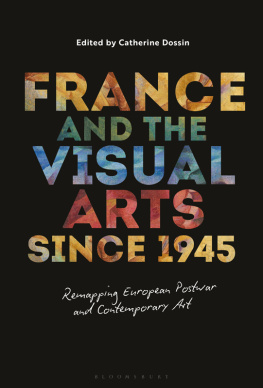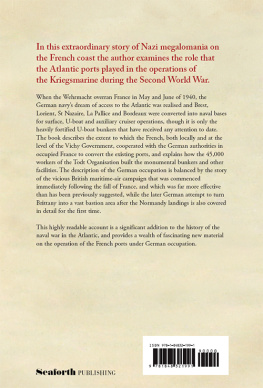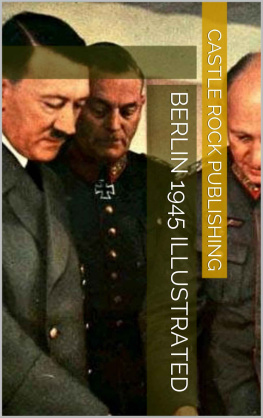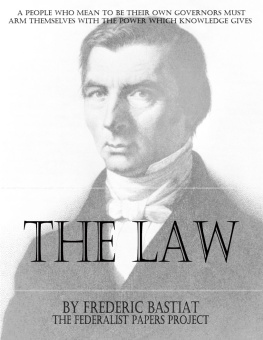Frédéric Bozo - France and the German Question, 1945–1990
Here you can read online Frédéric Bozo - France and the German Question, 1945–1990 full text of the book (entire story) in english for free. Download pdf and epub, get meaning, cover and reviews about this ebook. year: 2019, publisher: Berghahn Books, Incorporated, genre: Politics. Description of the work, (preface) as well as reviews are available. Best literature library LitArk.com created for fans of good reading and offers a wide selection of genres:
Romance novel
Science fiction
Adventure
Detective
Science
History
Home and family
Prose
Art
Politics
Computer
Non-fiction
Religion
Business
Children
Humor
Choose a favorite category and find really read worthwhile books. Enjoy immersion in the world of imagination, feel the emotions of the characters or learn something new for yourself, make an fascinating discovery.
- Book:France and the German Question, 1945–1990
- Author:
- Publisher:Berghahn Books, Incorporated
- Genre:
- Year:2019
- Rating:4 / 5
- Favourites:Add to favourites
- Your mark:
- 80
- 1
- 2
- 3
- 4
- 5
France and the German Question, 1945–1990: summary, description and annotation
We offer to read an annotation, description, summary or preface (depends on what the author of the book "France and the German Question, 1945–1990" wrote himself). If you haven't found the necessary information about the book — write in the comments, we will try to find it.
France and the German Question, 1945–1990 — read online for free the complete book (whole text) full work
Below is the text of the book, divided by pages. System saving the place of the last page read, allows you to conveniently read the book "France and the German Question, 1945–1990" online for free, without having to search again every time where you left off. Put a bookmark, and you can go to the page where you finished reading at any time.
Font size:
Interval:
Bookmark:

| AAPD | Akten zur Auswrtigen Politik der Bundesrepublik Deutschland |
| ACDP | Archiv fr Christlich-Demokratische Politik, Sankt Augustin |
| AdsD | Archiv der sozialen Demokratie, Bonn |
| AMAE | Archives du ministre des Affaires trangres, La Courneuve |
| AMSZ | Archive of the Polish Ministry for Foreign Affairs, Warsaw |
| AnF | Archives nationales de France, Pierrefitte-sur-Seine |
| AP | Archives parlementaires, Paris |
| ASD | Affaires stratgiques et du dsarmement, MAE |
| AVPRF | Arkhiv Vneshnei Politiki Rossiiskoi Federatsii, Moscow |
| BKA-AA | sterreichisches Staatsarchiv, Archiv der Republik, Vienna |
| BKAH | Bundeskanzler-Adenauer-Haus, Rhndorf |
| CADN | Centre des Archives diplomatiques de Nantes, MAE |
| CAEF | Centre des archives conomiques et financires, Savigny-le-Temple |
| CAS | Centre darchives socialistes, Paris |
| CSU | Christlich-Soziale Union |
| DBPO | Documents on British Policy Overseas |
| DDF | Documents diplomatiques franais |
| EM | Entretiens et Messages, AMAE |
| FNSP | Fondation nationale des sciences politiques, Paris |
| FRUS | Foreign Relations of the United States |
| IPMF | Institut Pierre Mends France, Paris |
| MAE | Ministre des Affaires trangres, Paris |
| NA | National Archives Records Administration, Washington |
| PA/AA | Politisches Archiv des Auswrtigen Amts, Berlin |
| PEF | Politique trangre de la France. Textes et documents |
| RFA | Rpublique fdrale dAllemagne |
| RGANI | Rossiiskii Gosudarstvennyi Arkhiv Noveishei Istorii, Moscow |
| TNA | National Archives, The, Kew |
| WBA | WillyBrandtArchiv, AdsD, Bonn |
Font size:
Interval:
Bookmark:
Similar books «France and the German Question, 1945–1990»
Look at similar books to France and the German Question, 1945–1990. We have selected literature similar in name and meaning in the hope of providing readers with more options to find new, interesting, not yet read works.
Discussion, reviews of the book France and the German Question, 1945–1990 and just readers' own opinions. Leave your comments, write what you think about the work, its meaning or the main characters. Specify what exactly you liked and what you didn't like, and why you think so.

